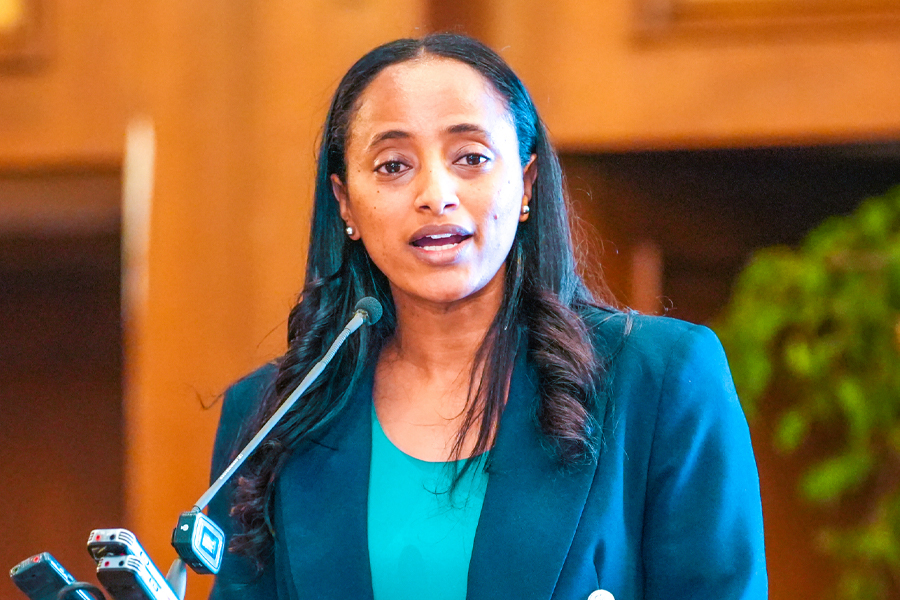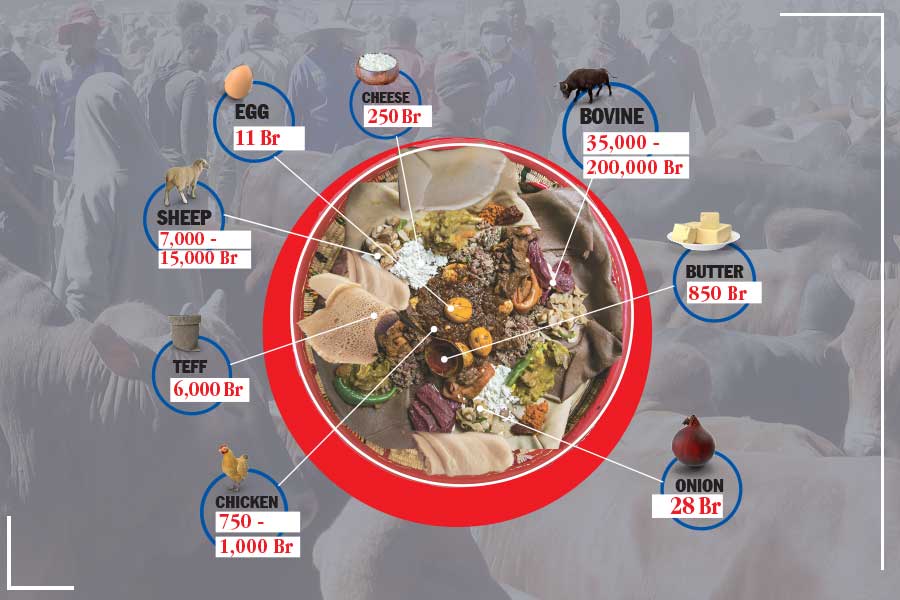
Radar | Jan 21,2023
A microcosm of Addis Abeba’s vibrant yet convulsive changeover unfolds in the jammed corridors of the Arada District Land Management & Administration Bureau, on Adwa St. Residents, burdened with a mix of hope and anxiety, queue for compensation, a wanting consolation for the upheaval their lives are undergoing due to the city administration’s ambitious urban redevelopment plans. Despite the uncertainty, many find a silver lining in securing a condominium on the city’s outskirts, a bittersweet transition demonstrating the broader shifts affecting over 2,000 households in the District. The backdrop to their stories is Addis Abeba’s acute housing shortage, a crisis exacerbated by an outdated census and a growing demand for affordable homes. The city’s Housing Development Corporation officials are scrambling to address this through the sale of condominium units, aiming to deal with a staggering debt while providing residents with a pathway to homeownership. Yet, the response comes with its own problems, from affordability concerns to the practicalities of adapting to smaller, unfinished living spaces.
Simultaneously, Addis Abeba is undergoing a massive “beautification and modernisation” project, promoted by Prime Minister Abiy Ahmed (PhD) and spearheaded by Mayor Adanech Abebie. The project aspires to transform the city’s infrastructure with new roads, bicycle lanes, and green spaces, beginning with an extensive corridor stretching from the Adwa Zero Kilometre Museum to the city’s heart. This ambitious initiative seeks to enhance the capital’s aesthetic appeal and improve its global standing. However, the drive for modernity has its casualties. The demolition of neighbourhoods and displacement of residents have sparked debates about the social and historical costs of such development. While promising economic resurgence, the Grand Corridor Development Project caused the relocation of thousands, raising concerns about the loss of community ties and the erasure of the city’s rich historical legacy.
The perspectives of those directly affected, the compensation and the promise of a new home do little to assuage their fears of job loss and the daunting task of starting anew on the city’s outskirts. It is a sentiment echoed in debates about alternative urban development strategies that focus on decentralised planning, and the development of regional towns could address the need for such disruptive measures. As Addis Abeba stands on the brink of change, a moment of transition for a city striving to reconcile its aspirations for modernity with the impacts on its residents’ lives continued unabated.
PUBLISHED ON
Mar 23,2024 [ VOL
24 , NO
1247]

Radar | Jan 21,2023

Radar | Jun 24,2023

Commentaries | Jul 17,2022

Commentaries | Mar 25,2023

Radar | Nov 11,2023

Featured | Nov 23,2019

Radar | Jul 08,2023

Radar | Apr 27,2025

Radar | Oct 14,2023

Fortune News | Jan 07,2023

Dec 22 , 2024 . By TIZITA SHEWAFERAW
Charged with transforming colossal state-owned enterprises into modern and competitiv...

Aug 18 , 2024 . By AKSAH ITALO
Although predictable Yonas Zerihun's job in the ride-hailing service is not immune to...

Jul 28 , 2024 . By TIZITA SHEWAFERAW
Unhabitual, perhaps too many, Samuel Gebreyohannes, 38, used to occasionally enjoy a couple of beers at breakfast. However, he recently swit...

Jul 13 , 2024 . By AKSAH ITALO
Investors who rely on tractors, trucks, and field vehicles for commuting, transporting commodities, and f...

Jun 28 , 2025
Meseret Damtie, the assertive auditor general, has never been shy about naming names...

Jun 21 , 2025
A well-worn adage says, “Budget is not destiny, but it is direction.” Examining t...

Jun 14 , 2025
Yet again, the Horn of Africa is bracing for trouble. A region already frayed by wars...

Jun 7 , 2025
Few promises shine brighter in Addis Abeba than the pledge of a roof for every family...